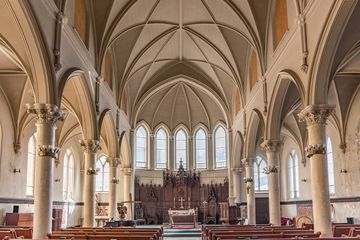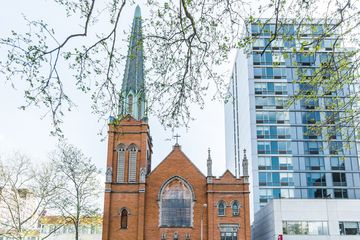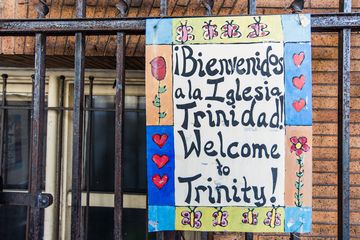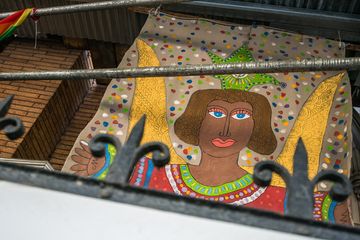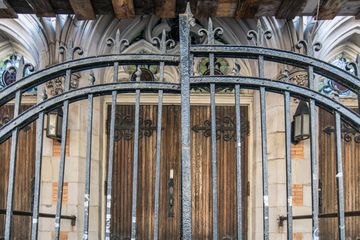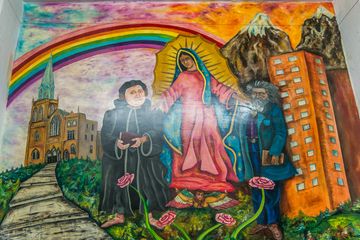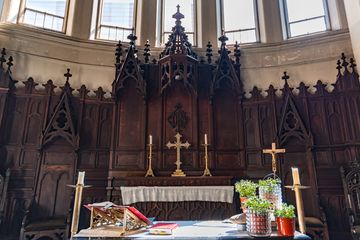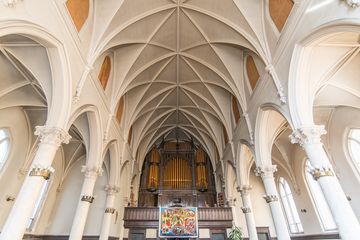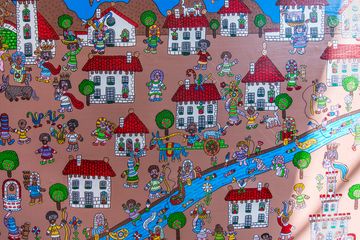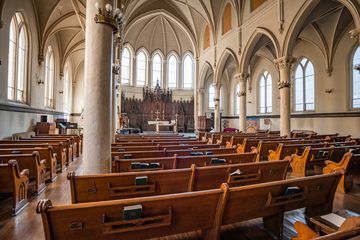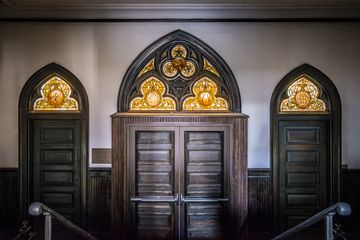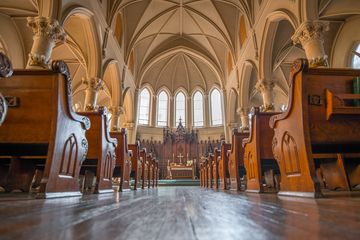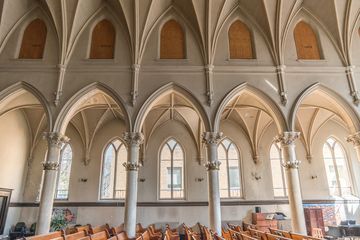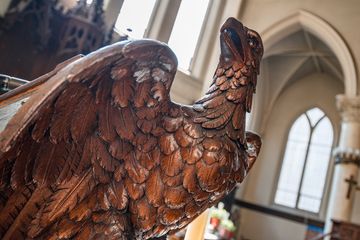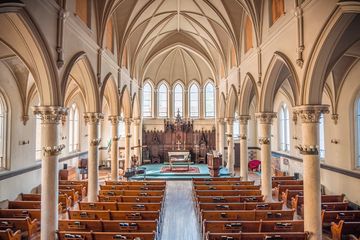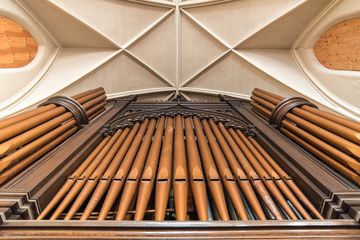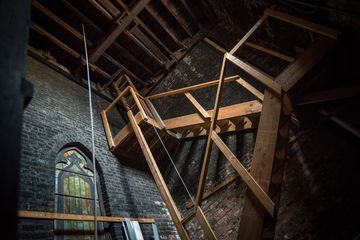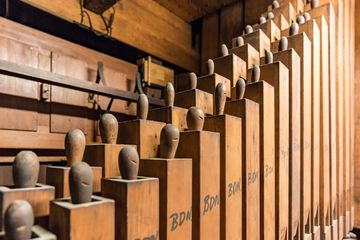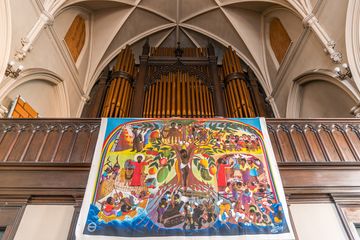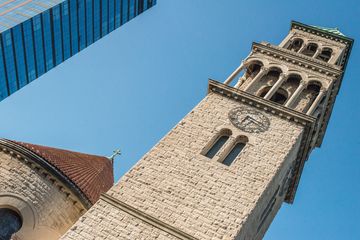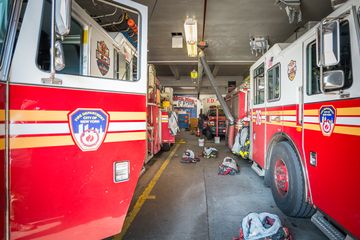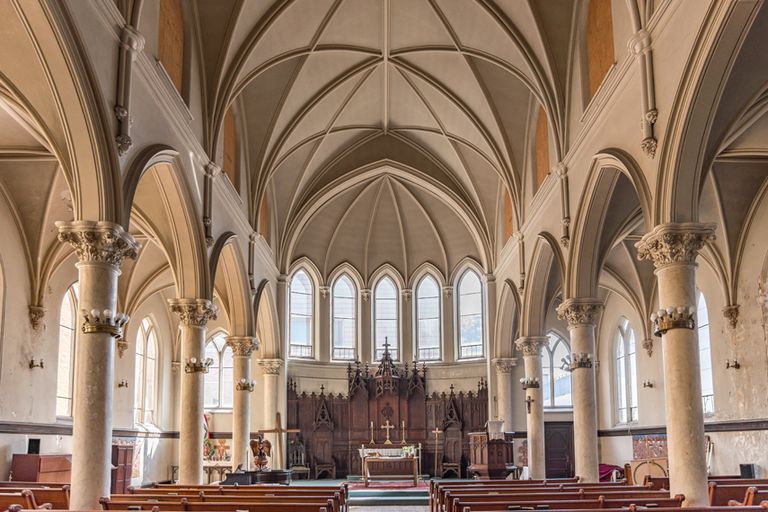
Even after walking 100 streets, from the East River to the Hudson, I continue to uncover fascinating stories about some incredible people. When I initially attempted to open the doors to the Trinity Lutheran Church, I could not get in. As I was standing across the street, however, a few minutes later, I noticed a young man exiting the door down below. I quickly crossed back over 100th Street and introduced myself to Hans, who turned out to be the Pastor's son - that pastor being Heidi Neumark, Hans' mom. Though I have visited dozens of churches in Manhattan, and I am sure that there are many women in senior spiritual leadership positions, Heidi was the first one I had heard of by name.
Hans kindly stepped back inside the church and invited us in. He was not only as charming as could be, but also very knowledgeable about the history of the church and the building, itself, but then this has been his home for much of his childhood.
Trinity Lutheran plays an important role in the neighborhood. "We've been here longer than anything else," Hans pointed out. The church was built in 1892, before Robert Moses came along with his grand ideas for city planning. The building survived the reconstruction in the 1960s and has thrived in the same spot for over 100 years. Hans took us into the sanctuary, where natural light streamed through large, clear windows. He explained that though the church has stained glass, they had to take it down when the thirteen-story building next door was being constructed so that it would not be damaged. We were able to see some of the stained glass, however, when Hans showed the Manhattan Sideways team through the inside of the organ to the wooden staircase that winds around the interior of the church's steeple. Here, we discovered one window's stained glass that had been left in place.
The church is very liberal. The congregation open to everyone, no matter their race, sex, income, sexuality, or gender identity. Heidi even welcomes congregants to change pronouns and nouns in sacred texts that give a gender to God. Signs of inclusion and openness are everywhere in the church. There is a beautiful mural hanging from the organ loft that depicts a black Jesus. "Everyone finds their own message in it," Hans said. Trinity Lutheran continues its liberal vision in community outreach programs, including housing a homeless shelter for gay young men from age 18-21.
After speaking about the history of the church, Hans went on to talk about his family. We were completely captivated as he relayed how his parents met while his mom was doing missionary work. Heidi was an activist, smuggling books into Argentina. When she returned to the United States, she worked with prostitutes, gang members, and drug addicts in the Bronx. Though she was raised as a German Lutheran, she learned in 2009 that her father was actually a German Jew. Afraid of further persecution, he raised his children Christian, and the family did not find out their true heritage until decades later. Heidi wrote a book about the discovery and her new questions about her identity entitled, "Hidden Inheritance: Family Secrets, Memory, and Faith." It is her second book after "Breathing Space: A Spiritual Journey in the South Bronx," a memoir. In ending his story, Hans sweetly proclaimed, "She's the matriarch of the family,"
